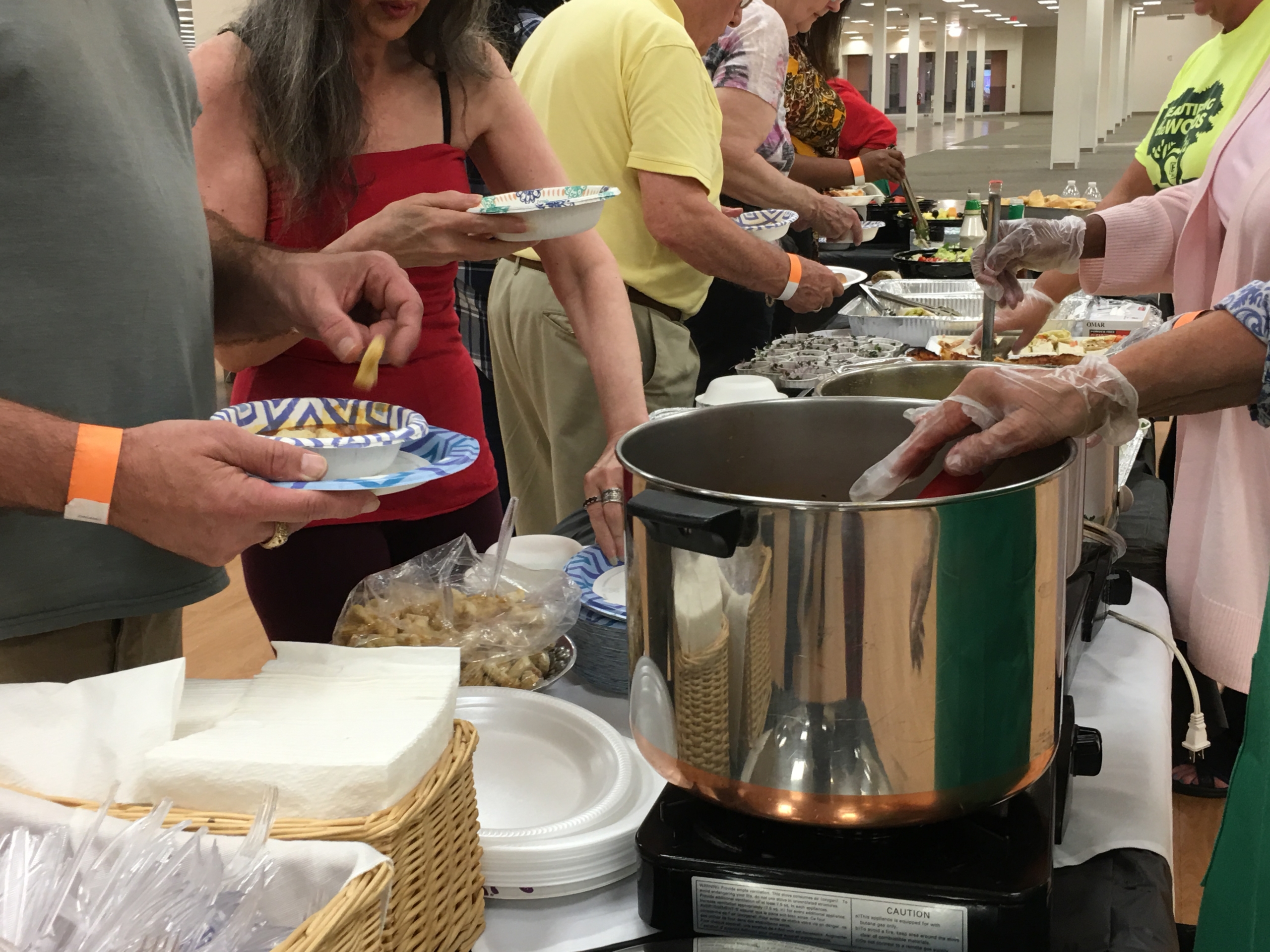
At the MML Foundation, we believe that a civically engaged community is key to sparking and sustaining positive change and growth in Michigan’s cities. As 2020 continues to bring hardship and uncertainty, we see deepening divisions highlighted in the news, and a sense of hopelessness, as individuals, over the state of our world. Despite that, we have seen neighbors coming together to support one another that counter the narrative we see on the news.
In response to these events, the MML Foundation launched the Bridge Builders microgrant program. It is our aim to seed projects that recognize that we have more that unites us than divides us and seek to mend relationships in their communities. This year has made many Americans feel they have no control over the larger forces of the economy, politics, the pandemic, and more. We must believe the opposite to be true and act if we are to emerge from 2020 stronger than we entered it.
To borrow from the oft-quoted, outspoken American anthropologist Margaret Mead:
Never doubt that a small group of thoughtful, committed, citizens can change the world; indeed, it’s the only thing that ever has.
From 74 outstanding applications from across the state, we narrowed down the list to just sixteen semifinalists – which was not an easy task. The semifinalists received over 4,000 votes collectively during the public voting round. An external selection panel of five emerging leaders in philanthropy from across Michigan took these votes into consideration along with the overall feasibility, creativity, and commitment to equity that these projects demonstrated to select seven applications for funding.
Here’s a look at the recipients of the inaugural round of the Bridge Builders microgrant award.
Vaughn’s Bookstore – Detroit
Our words couldn’t tell the story of this project better than the applicants’. Here’s an excerpt from their application:
“In the heart of Detroit, Ed Vaughn opened Vaughn’s Bookstore in 1964. It served as a repository for cultural, spiritual, and socially conscientious writings for the Black community. The bookstore soon became a popular spot for community meetings to discuss the civil inequities that were prevalent at the time. Unfortunately, it was destroyed by police during the ’67 riots and Mr. Vaughn was never able to bring the location back to its former glory. Having helped remove this property from the demolition list, the community members want to bring attention to the site as a historical and culturally significant landmark and make it the social and educational galvanization point for the community that it once was. We have some visions for the space, but we believe it is important to engage the community in the dialogue from the beginning.”
We hope that the community engagement that the microgrant will fund will help catalyze the redevelopment of this space into a community asset.
U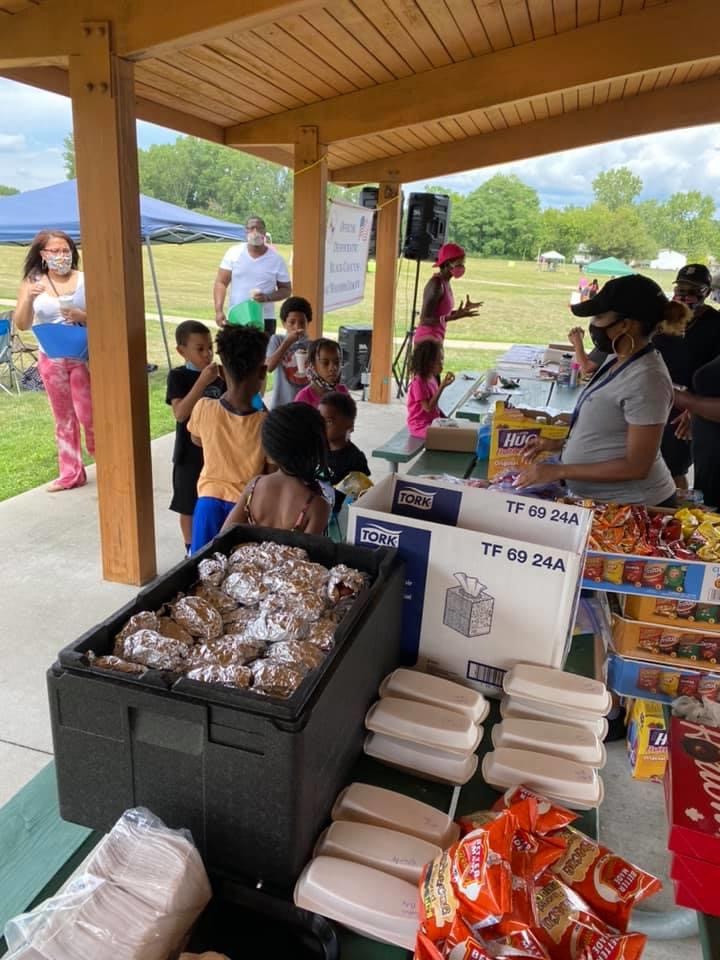 nifying Quinn Road – Clinton Township
nifying Quinn Road – Clinton Township
Since the start of the pandemic, there have been fewer options for people to gather with neighbors, family and friends. We know that this will be particularly difficult for children, whose development is dependent on meaningful social interaction. To combat this isolation and to provide safe and constructive activities for youths, a group of residents in Clinton Township stepped up. They took it upon themselves to organize masked, socially distanced events with games, food and activities for families. The next event that they will host using the microgrant dollars, will be a Halloween-themed event.
The Park Project – Flint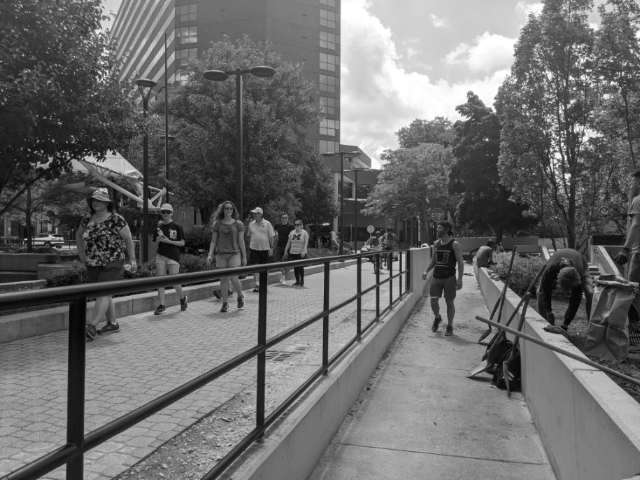
After spending over 300 volunteer hours on cleaning up the Riverbank Park in Flint, community members are ready to transform it into a more interactive and inviting space for future events. They’ll be commissioning an artist to create the city’s first “community coloring book” by painting a design over chalkboard paint that people can then color in with chalk. By engaging people in the park cleanup and then turning it into a space that is always evolving and can be altered by community members, it creates a sense of ownership in the community and will serve as a venue for community events, cultural events, and more.
One B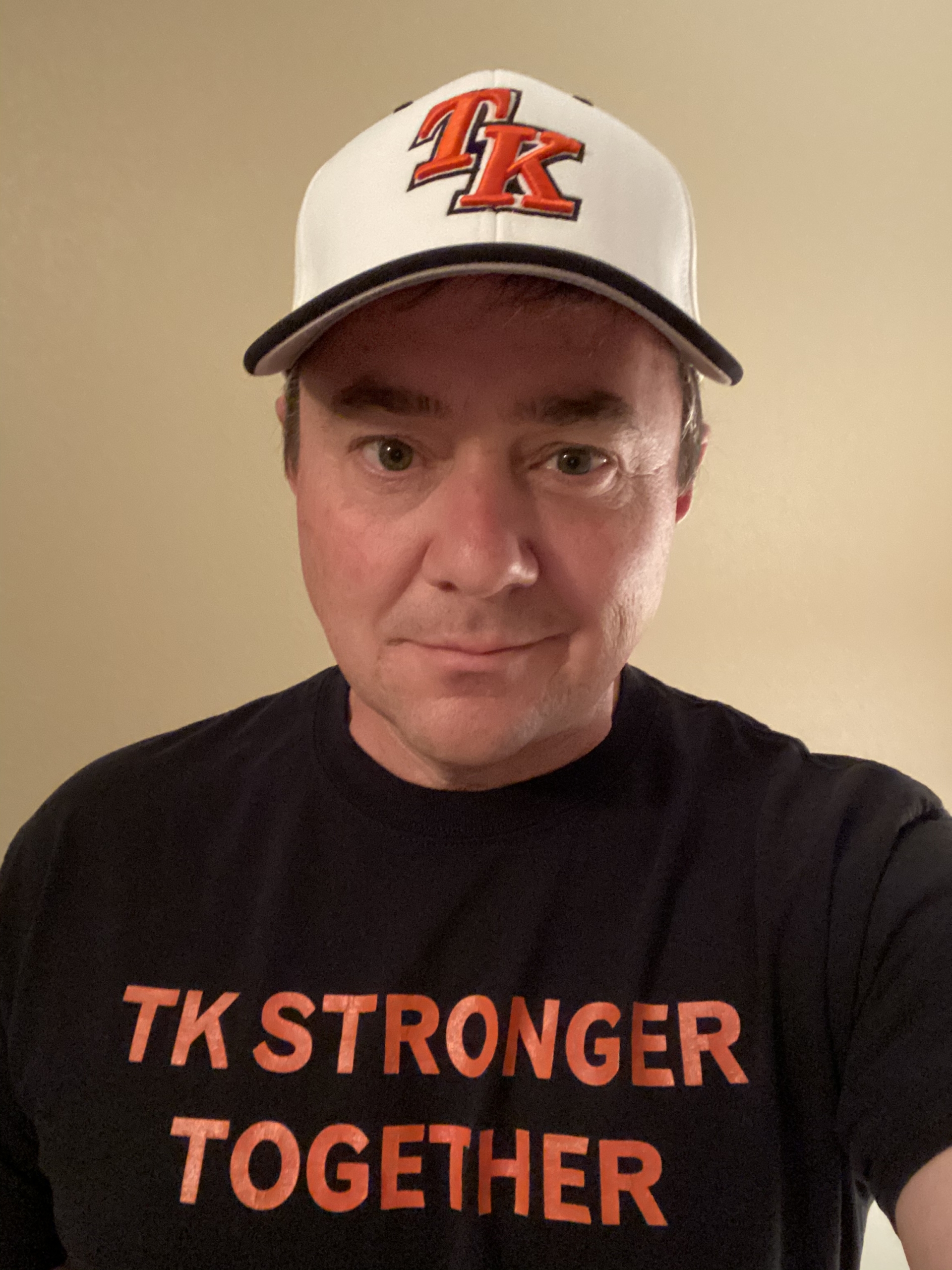 ook One Community – Middleville
ook One Community – Middleville
Middleville schoolteacher Scott Aldrich (pictured left) partnered with a local librarian and a community member to start a community-wide book read of Just Mercy with virtual intergenerational discussions around race, poverty, and mental health in America. They have a goal of doing their own work to make Middleville a more welcoming community. They’ll be using the grant dollars to purchase copies of the book for those who can’t afford it but want to participate. They’ll be encouraging people to donate their copies at the end of the series so they can be used for a future book read.
Lane Bangerz Bike Club – Detroit
The Detroit Lane Bangerz is a very active community-based bike club on the westside of Detroit. Their love for 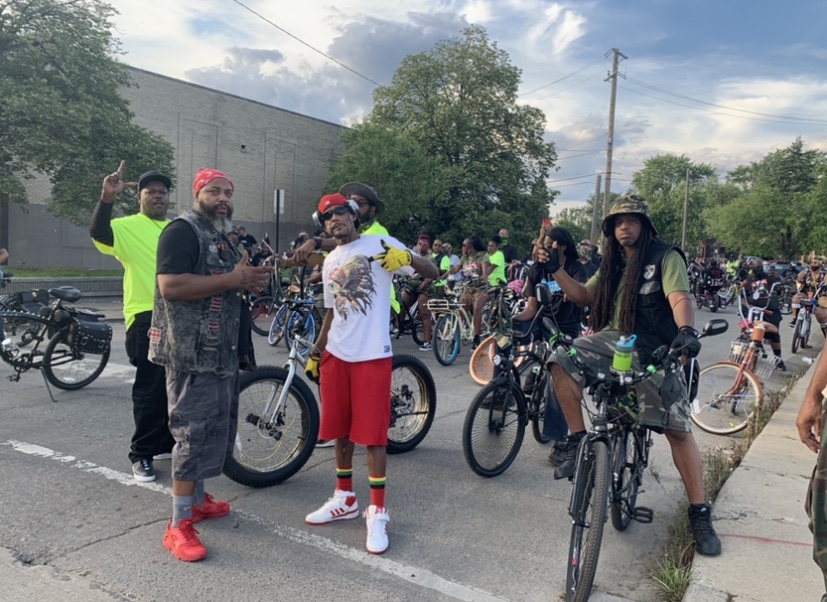 bicycles is what brought them together, however, they soon realized that they also shared a passion for wanting to build a stronger community, from within the community. To say that they do A LOT of community service and volunteer work would be an understatement
bicycles is what brought them together, however, they soon realized that they also shared a passion for wanting to build a stronger community, from within the community. To say that they do A LOT of community service and volunteer work would be an understatement
With the pandemic leaving people seeking ways to connect safely, their WestSide Wednesday community bike rides became even more popular and they are continuing to grow. This microgrant will help them continue to expand their community bike rides, provide a socially distanced activity, engage more residents in the volunteer efforts, and do all of this safely with additional PPE and safety equipment like reflective vests and bike repair supplies.
Rebuilding the Underground Railroad Garden – Ypsilanti
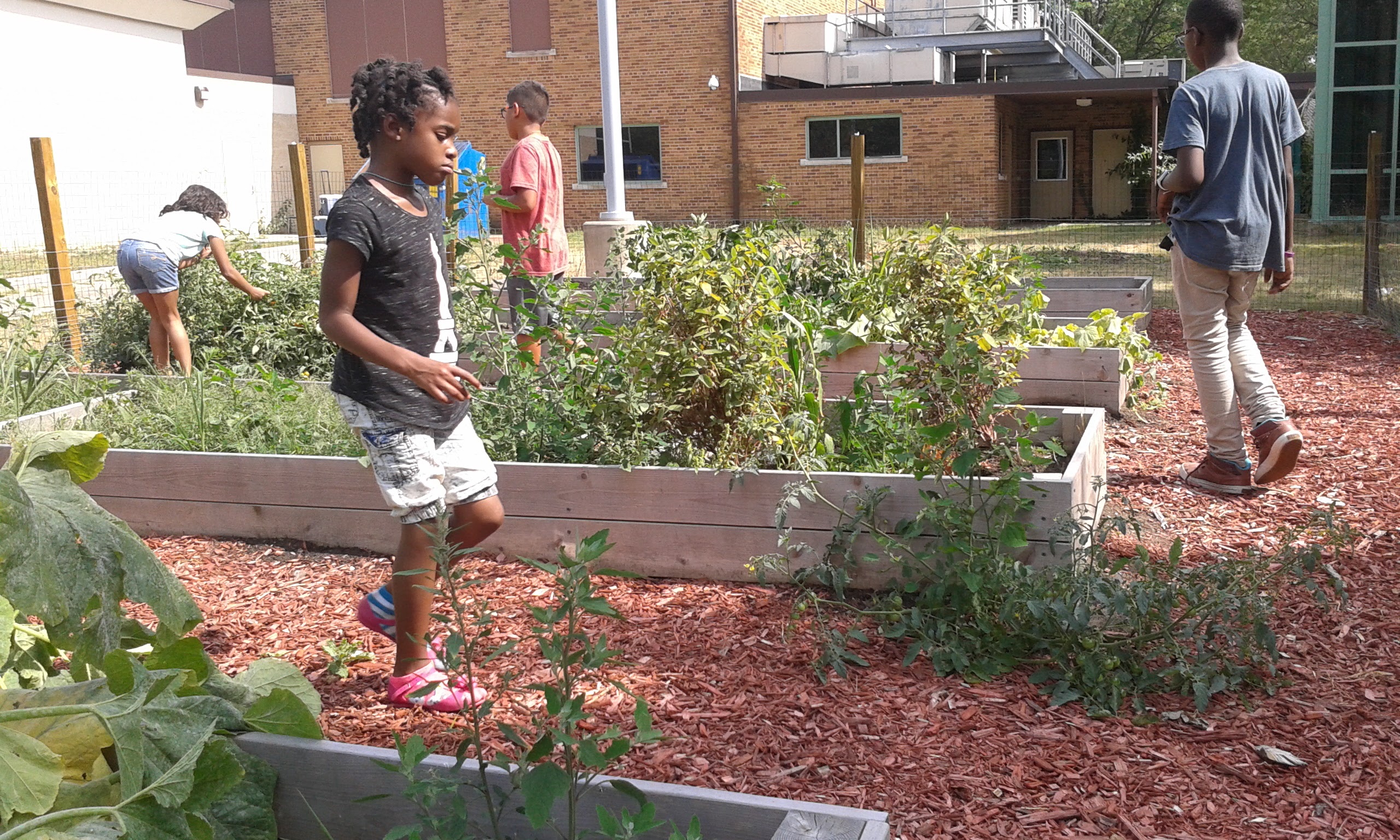 Through this garden, the grant applicants are teaching the community about the history of the Underground Railroad, fighting poverty through giving community members access to fresh produce, and enhancing the knowledge base of agricultural practices in an urban setting. This garden serves a very immediate need by providing fresh food and prompts open, safe discussions about America’s history of slavery through a discussion on the plants that were vital to people escaping slavery via the Underground Railroad. The microgrant
Through this garden, the grant applicants are teaching the community about the history of the Underground Railroad, fighting poverty through giving community members access to fresh produce, and enhancing the knowledge base of agricultural practices in an urban setting. This garden serves a very immediate need by providing fresh food and prompts open, safe discussions about America’s history of slavery through a discussion on the plants that were vital to people escaping slavery via the Underground Railroad. The microgrant
dollars will be used to create interpretive signage for the garden.
SOUP & Small Business Showcase – Harper Woods
Harper Woods Soup applied for the Bridge Builders microgrant so they could give even more support to startup businesses in their community during the very hard times created by COVID-19. This microgrant will help Harper Woods Soup transition to a robust virtual platform so they can continue to fundraise, as well as send all their grantees to the Build Institute for classes to help them through the pandemic.
Congratulations to this outstanding cohort of Bridge Builders! The cohort of Bridge Builders recipients will be meeting this year, virtually of course, to refine their programs and discuss how they can keep the momentum going in their respective communities.
Based on the overwhelmingly positive feedback on this program, the Bridge Builders microgrant program will continue. Programs like this rely on the generosity of donors. If you’re interested in supporting programs like this, click here.

